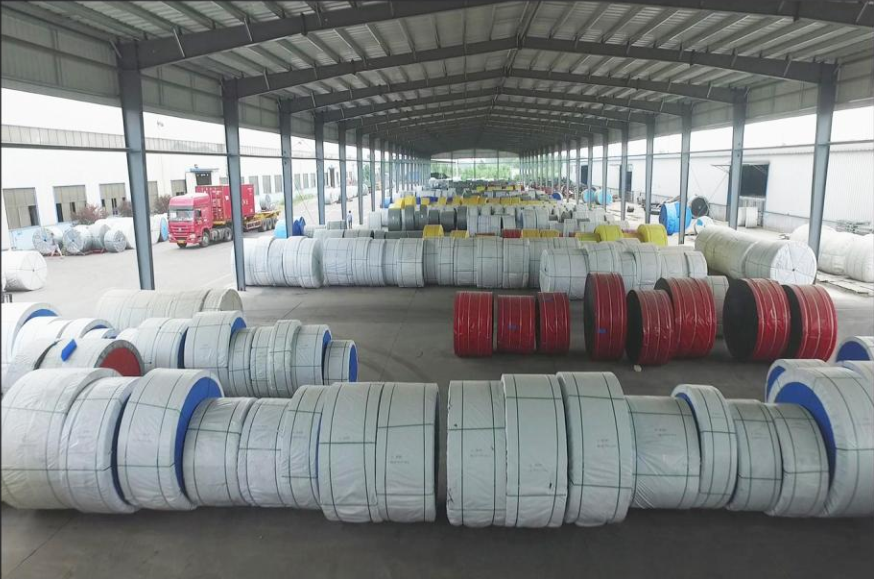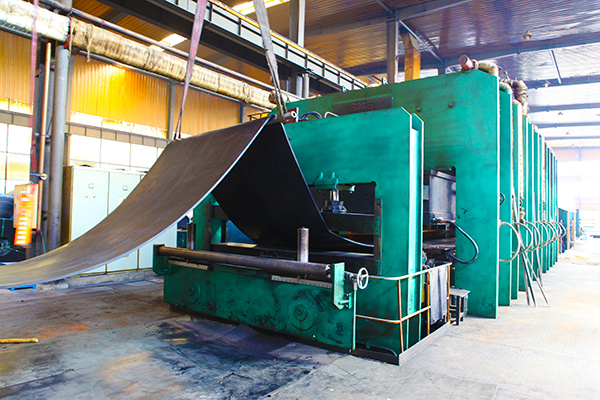Revolutionizing Efficiency: Rubber Conveyor Belts Streamline Industrial Workflows
Rubber Conveyor Belts
In today's fast-paced industrial landscape, maximizing efficiency is key to stay competitive. A breakthrough innovation has emerged, revolutionizing the way goods are transported within manufacturing facilities. Rubber conveyor belts have proven to be a game-changer, streamlining workflows and optimizing productivity like never before.

These cutting-edge rubber conveyor belts, meticulously engineered with durability and performance in mind, have become an indispensable tool for industries worldwide. With their seamless operation, they enable a smooth flow of materials, reducing the risk of bottlenecks and increasing overall productivity.
One of the industries benefiting greatly from this innovation is the automotive sector. Automakers, faced with growing production demands, have adopted rubber conveyor belts to enhance their assembly lines. The belts effortlessly transport components from one workstation to another, reducing manual handling and speeding up the production process. This improvement translates into shorter lead times, increased output, and ultimately, a more satisfied customer base.
Additionally, the food and beverage industry has embraced this technology to maintain high-quality standards while meeting the demands of a rapidly growing market. Rubber conveyor belts provide a hygienic and efficient solution for moving perishable goods through various stages of processing, packaging, and distribution. By minimizing human contact and contamination risks, these belts ensure the safety and freshness of the products, gaining customers' trust and loyalty.
Another noteworthy aspect of rubber conveyor belts is their ability to adapt to different environments. Whether it's extreme temperatures, harsh chemical exposure, or high loads, these belts are designed to withstand the most challenging conditions. This versatility allows various industries, such as mining and construction, to optimize their operations, reduce downtime, and improve overall safety for workers.
In an ever-evolving digital world, successful marketing techniques must leverage current events to captivate audiences. Recent environmental concerns have sparked a global conversation on sustainability. Rubber conveyor belts contribute to this dialogue by reducing energy consumption and minimizing waste. Manufacturers utilizing these belts can position themselves as eco-friendly and responsible, appealing to environmentally-conscious consumers seeking sustainable products.
To further enhance customer satisfaction and promote brand loyalty, manufacturers have also incorporated smart technologies into their rubber conveyor belts. Integration with advanced control systems, sensors, and monitoring devices allows real-time data analysis, predictive maintenance, and swift troubleshooting. This proactive approach facilitates optimized operations while ensuring minimal downtime and maximum uptime.

In conclusion, rubber conveyor belts have emerged as indispensable allies for industries worldwide, revolutionizing workflows and boosting productivity. Their ability to seamlessly transport materials, support various industries, adapt to demanding conditions, and promote sustainability make them an essential tool in the modern industrial landscape. By embracing this technology, businesses can stay ahead of the competition, enhance efficiency, and meet the evolving needs of their customers.
 O'zbek
O'zbek slovenský
slovenský Azərbaycan
Azərbaycan Қазақ
Қазақ Latine
Latine ລາວ
ລາວ български
български नेपाली
नेपाली فارسی
فارسی Javanese
Javanese Українська
Українська Lietuvos
Lietuvos Română
Română Slovenski
Slovenski پښتو
پښتو Punjabi
Punjabi Bosanski
Bosanski Malti
Malti Galego
Galego Afrikaans
Afrikaans Esperanto
Esperanto 简体中文
简体中文 Српски
Српски मराठी
मराठी Ελληνικά
Ελληνικά čeština
čeština Polski
Polski ไทย
ไทย Nederlands
Nederlands Italiano
Italiano Tiếng Việt
Tiếng Việt Deutsch
Deutsch français
français русский
русский Português
Português Español
Español 한국어
한국어 Svenska
Svenska Malay
Malay اردو
اردو norsk
norsk Indonesia
Indonesia عربى
عربى Gaeilge
Gaeilge Türk
Türk Pilipino
Pilipino हिन्दी
हिन्दी Dansk
Dansk বাংলা
বাংলা English
English


What Causes Excessive Wear on Conveyor Belt Edges and How to Prevent It
Excessive conveyor belt edge wear—caused by misalignment, uneven loading, worn rollers, or debris—can be minimized through proper alignment, even material distribution, regular maintenance, and protective measures like skirting and edge guards.
Read MoreHow to Stop Belt Conveyor from Tracking Off-Center (Running Sideways)
Belt conveyors are essential components in industries ranging from mining and manufacturing to logistics and warehousing. However, one of the most common operational issues faced by facility managers and engineers is belt misalignment, often referred to as tracking off-center or running sideways. This problem not only reduces efficiency but can also cause excessive wear, damage to components, and potential safety hazards. Understanding the causes and solutions is key to maintaining smooth conveyor operations.
Read MoreRotary Scraper for Belt Conveyor Sees Growing Use in Industrial Bulk Handling
As industries worldwide continue to automate material-handling processes, the Rotary Scraper for Belt Conveyor has become an increasingly common component in production facilities. Designed to remove residual material from conveyor belts, rotary scrapers are enhancing operational efficiency, reducing downtime, and improving product quality across multiple industrial sectors.
Read More